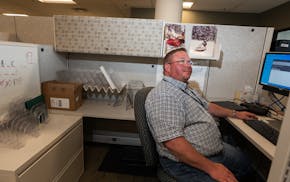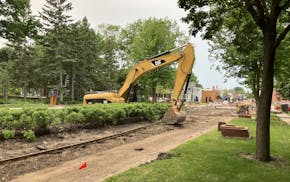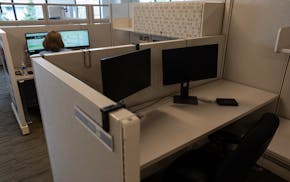Voters in St. Paul head into 2025 without much shaking on the electoral front.
There's to be a mayoral race, but incumbent Melvin Carter has yet to announce whether he's running again and no other big names have emerged.
The biggest change, however, is this: There'll be no school board candidates to watch or get behind.
Three board seats were to be contested this fall. But in early December, school board members opted to move that election to November 2026.
The action came in response to St. Paul voters deciding two months ago to move the city's elections to even-numbered years. The school board then had to decide about the 2025 election, and in the process, members agreed to extend each of their four-year terms to five years, too.
A mayoral election still will be held in 2025, as required under the even-year ballot measure, and the winner will serve a one-time, three-year term.
School board races can be sleepy affairs, but they do include spring caucuses during which voters rally behind candidates and causes. Ten years ago, a "Caucus for Change" movement doomed the then-incumbents, and a year later, Superintendent Valeria Silva was ousted.
The state's second-largest school district still could make its way onto the November ballot, however, by asking voters to back more money for schools.
The idea was floated recently by the St. Paul School District's top finance official and could be discussed soon in a board workshop, although no meeting's been scheduled yet.
The language for such a ballot measure would have to be approved by the board by mid-August.
Last month, Tom Sager, the district's executive chief of financial services, told board members that St. Paul was raising the second-least amount of tax money per pupil among 11 area school districts. If it persuaded voters to back the average amount per pupil being collected by those districts, it would have an additional $34.8 million annually to run its schools, he said.
Stacie Stanley, recently chosen by board members to be the district's next superintendent, said when she was interviewed that raising additional funds locally was an idea that should be explored.
Board Chair Halla Henderson, however, said she was hesitant to ask more of taxpayers who've spoken out about the increased burden on homeowners.
"It might just not be the time," she said of such a proposal, although she added she was open to discussing it.

After years at home, thousands of Minnesota state workers are about to return to the office
In South Carolina, Walz says Democrats 'need to change the attitude'

On the campaign trail, Elon Musk juggled drugs and family drama

Grand Avenue reconstruction unearths streetcar tracks, showing St. Paul's past

